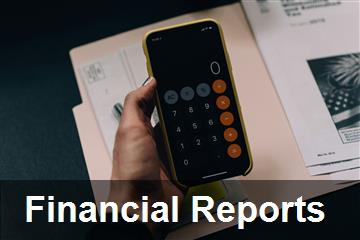
18 set 2024
The Court of Reggio Emilia has ruled that financial reports must include detailed information received from foreign entities.
This decision highlights the need for complete and accurate data in contesting invoices for non-existent operations.
The ruling emphasizes that generic and partial information from foreign bodies is insufficient for such claims.
The court's decision underscores the importance of transparency and thoroughness in financial reporting, especially in the context of international transactions.
The Court of Reggio Emilia, in its ruling n. 169/2/2024 dated July 17, emphasized the necessity for detailed financial reports when dealing with information received from foreign entities.
This decision arose from a case involving the contestation of invoices for non-existent operations related to goods purchased abroad.
The court found that incomplete and summarized information provided at the discretion of the Guardia di Finanza (Gdf) from a generic 'foreign collateral body' was insufficient to support such claims.
The case reflects a common scenario due to increased scrutiny of international transactions.
The Gdf, through its Cooperation Office with collateral entities of the General Command, acquires information on foreign operators involved in transactions with Italian taxpayers.
However, the information received is often generic and partial, with omissions such as the original requests made to the foreign administration, summarized and translated responses by the Gdf, and the absence of the original foreign language version.
Additionally, the identity and fiscal competence of the foreign body providing the information are sometimes unclear.
In this particular case, the judges noted the weak probative value of the elements reported by the foreign body and transcribed in the Gdf's report.
Specifically, the investigative phase evolved through a telematic application, and the Gdf decided to omit the questions posed, providing only a summary of the responses received.
The identity and investigative powers of the foreign body within its legal system were not evident from the records.
Regarding the claimed privileged status of the information as it was transcribed in a report, the court clarified that this status only applies to facts witnessed by the military personnel.
In this case, the personnel merely reported statements made by foreign entities.
The court highlighted that offices often claim this privileged status without considering that greater prudence might be necessary to protect the reporting personnel.
According to consistent jurisprudence, this privileged status does not cover the entire content of the report but only the facts witnessed and performed by the reporting personnel.
Ultimately, such contestations could force the taxpayer to file a complaint to defend themselves, potentially leading to consequences for the reporting personnel if discrepancies arise between the foreign communications and the report.
Critical Aspects and Potential Issues
- Insufficient probative value of generic and partial information.
- Lack of clarity on the identity and competence of the foreign body.
- Potential legal consequences for reporting personnel due to discrepancies.
Typical Pitfalls and Errors
- Omitting detailed information and original foreign language versions.
- Over-reliance on the claimed privileged status of transcribed information.
- Inadequate verification of the foreign body's investigative powers.
Suggestions and Useful Indications
- Ensure complete and accurate documentation of information received from foreign entities.
- Verify the identity and fiscal competence of the foreign body providing the information.
- Exercise prudence in claiming privileged status for transcribed information.

